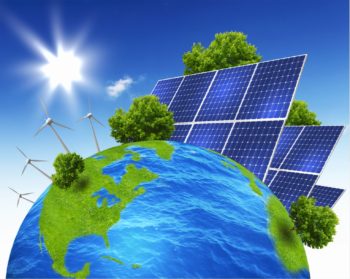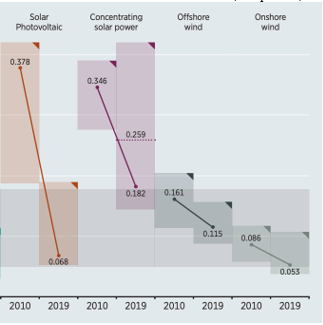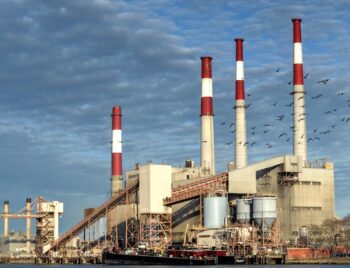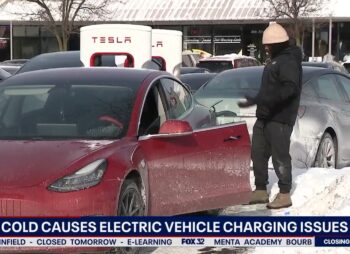
Its official message is that fossil fuel is an archaic source of electricity now being battered by upstart competitors wind and solar.
Bear in mind that world electricity supply pans out at 38 percent for coal, 23 percent gas, and 26 percent hydro/nuclear. Wind/solar supply 10 percent.
IRENA tirelessly advocates for renewables, saying they “could form a key component of economic stimulus packages in the wake of the COVID-19 pandemic.”
And in the purple prose so common with these green-spruiking agencies it claims, “Scaling up renewables can boost struggling economies. It can save money for consumers, pique the appetites of investors, and create numerous high-quality new jobs.”
Investment in renewables is amplified by other benefits, the story goes, as it is alleged to bring “health, sustainability, and inclusive prosperity.”
When it comes to renewables, no snake-oil salesman of old could hold a carbon-neutral candle to the likes of their modern green-lipped urgers.
IRENA would have us see renewable power installations as a key component of economic stimulus packages in the wake of the COVID-19 pandemic, claiming that replacing one-quarter of the world’s existing coal capacity with wind and solar would, in addition to cutting electricity costs, bestow a stimulus worth US$940 billion, or around one percent of global GDP.
All this is, of course, is super-heated hot air billowing from the deep pockets of IRENA’s multi-government funding.
It rests upon the sort of spurious arithmetic swallowed whole by Australian governments which, having granted regulatory favors to wind/solar, cheer the dynamiting of low-cost, dependable coal plants and the consequent price escalation and network unreliability.
IRENA estimates the cost of electricity from new coal plants at between US$50 per MWh and US$177 per MWh. The cost of the plant itself is pretty standard internationally, but that of transmission and fuel is highly variable, as are construction costs.
For Australia, rigorous analysis by GHD for the Minerals Council estimated a new high-efficiency/low-emissions black coal generator would be as low as $40 per MWh.
Australian coal’s locational advantages were the key to this low cost, offset somewhat by a “CFMEU” union loading disability (lifting labor costs 25 percent above the level that would prevail without unionized rigidities).
Compared with its coal-generation cost estimates, the shaded area in the diagram below, IRENA puts the cost of solar photovoltaics as having declined to US$68 per MWh; of large scale solar to US$182 per MWh; and that of wind to $US53 per MWh.

Given all these entirely confected “advantages” of wind and solar, IRENA is disappointed that global growth in renewable investment seems to have stagnated over recent years.
It attributes this to the concocted story — cooked up by itself, mind you — about “subsidies” to coal, the estimates for which are derived from another IRENA paper that confusingly traverses many different international sources with widely different approaches and estimates.
The global subsidy figure IRENA cites for fossil fuels is $447 billion, which excludes greenhouse “externality costs.”
The subsidies for coal itself are said to be $17 billion (astonishingly, this includes the UK which no longer has any generation from coal). Germany is the largest coal subsidizer (to enable its coal industry to compete with imports).
Coal comprises 40 percent of German electricity supply, and IRENA quotes annual subsidy estimates ranging from $US 10 billion while also lending credibility to the (US)$58 billion Greenpeace estimate.
Aside from coal, add a further $128 billion of subsidies to electricity generation generally, this from government-mandated price controls, estimates of concessional finance, and support for carbon capture and storage.
Coincidental to the IRENA release was a report of an agency dedicated to destroying the competitiveness of the Australian energy industry, the Global Carbon Capture and Storage Institute (GCCS).
Bear in mind that GCCS was bankrolled by the Rudd/Gillard government but, despite all that money from the public purse, it is very secretive about its accounting.
Its latest press release refers to yet another reputed success in carbon capture and storage, said to be burying 1.6 million tonnes of CO2 a year with Canadian government subsidies of C$558 million.
Some may take perverse comfort in knowing Australia is not the only country dedicated to committing economic suicide with addled “energy competitiveness” initiatives.
Agencies like IRENA parade their cost fabrications purely to arm the governments that finance them with the information they can use to promote the subsidies that are needed – temporarily of course – to get these “clean” energy investments over the line.
The message is heard loud and clear in all Western nations (except Trump’s America) and lip service is paid to it in the developing world just so long as rich countries pick up the tab.
Most of the Western world is adopting economically debilitating emission-restraint policies, but there is no prospect of China, India, Vietnam, and Indonesia sacrificing their possibilities of Western-style living standards by abandoning fossil fuels, always the cheapest energy source.
As these nations are now responsible for two-thirds of the world’s greenhouse gas emissions, all the international agitprop in the world will make no difference to the trivial global warming that the burning of fossil fuels may be causing.
Agencies like IRENA, their national counterparts, lobby organizations, and leaders like that of EU President Ursula von der Leyen continue to beat the drum even as reality bites elsewhere.
But reality bites elsewhere. In Melbourne, several green-left councils have announced the deferral of “sustainability” expenditures as they grapple with massive funding reductions in the light of the lockdown.
These councils will not be the only government agencies who decide that, with reduced incomes, saving the planet takes a back seat to saving public service jobs!
Read more at Quadrant

















2020 Recorded Weather Dependent Renewables Productivity UK
Onshore wind 24%
Offshore Wind 31%
Solar PV 10%
Average Renewables 22%
Conventional Generation 90%
What do these productivity numbers mean?
Think about electricity generation as a business, which provides a product which has to be of consistent high quality and which is vital to all the businesses of your Nation.
But more than half of your labour force only turn up on 1 day in 5. And you don’t really know which day that might be.
But the unions insist that if they do turn up you have to employ them and lay off some of the guys that can work full time.
And worse than that, almost to half of those guys only turn up 1 day in 10. And those ones usually arrive on days when you are not likely to need them but you still have to pay them in full. Anyway, they always go home before the time of your maximum work load.
The unions also insist that you pay them about 5 – 15 times as much as your ordinary productive workers.
And when they do arrive, they cause difficulties with quality assurance, severe industrial disruption and have the ability to close down your production altogether.
These workers get tired quickly and retire a third of the way through the normal working life.
This is the scale of business problems that the ill-informed decision to opt for collecting dilute and irregularly intermittent energy from the environment and calling it Renewable.
And all this is insisted on by law to show your neighbours how virtuous you are at tackling a fabricated problem, even though however self-harming your actions can only ever affect perhaps ¼ of a diminishing 1% of the perceived global problem. At the same time your own actions will be likely to trash your own economy for that very marginal effect.
The competitors in your market don’t think you are either wise or virtuous and will be delighted to take advantage of the huge commercial disadvantage that you have had imposed on your business.
And on occasion you are obliged to pay those ‘workers’ to not work, “Stay hom and bludge, we’ll pay you to do so.”
bludge \BLUJ\ verb. 1 : (chiefly Australia & New Zealand) to avoid work or responsibility. 2 : (chiefly Australia & New Zealand) to get something from or live on another by imposing on hospitality or good nature : sponge.
Worried about this carbon capture thing. Are capturers capturing from a local process or generally from the air around us? If the second, why , we’ll be capturing Chinese CO2!!